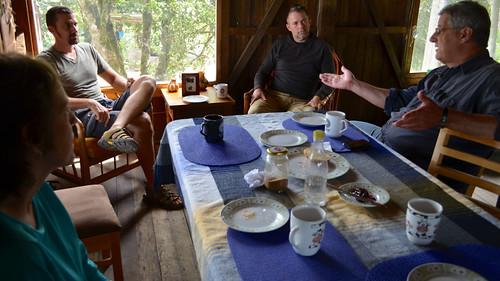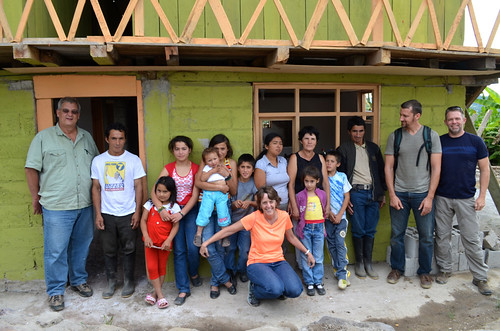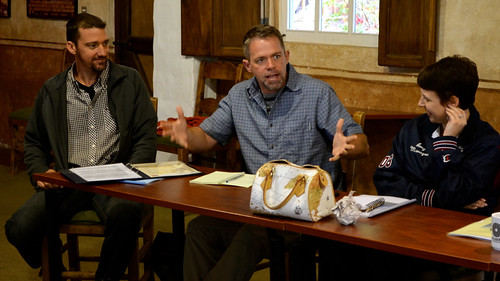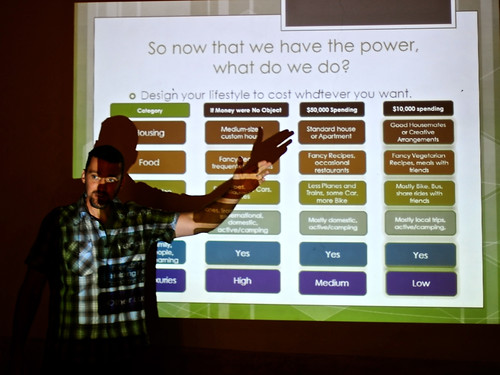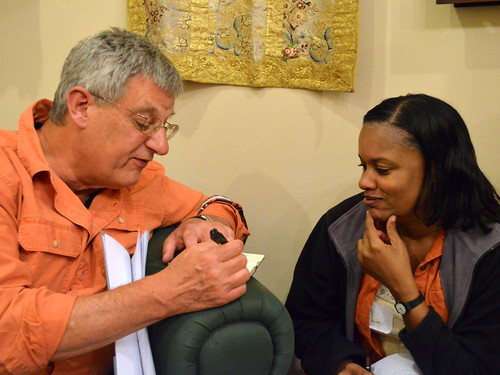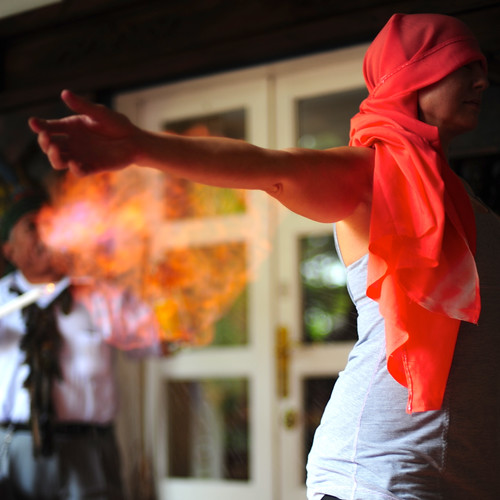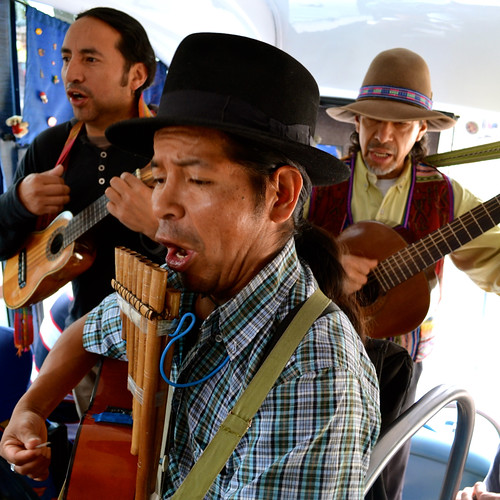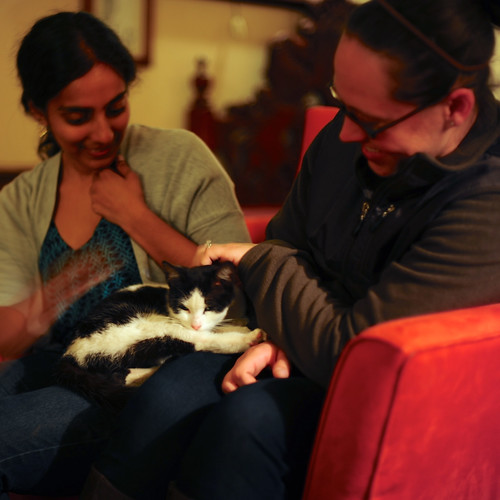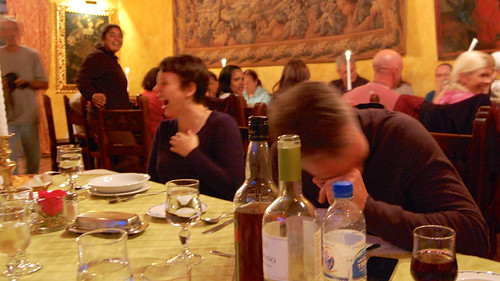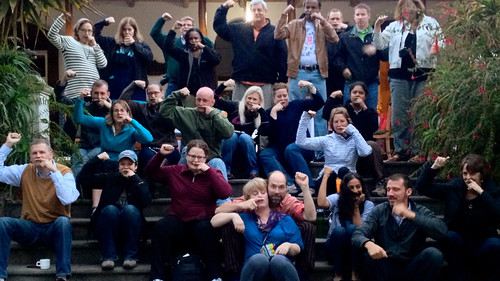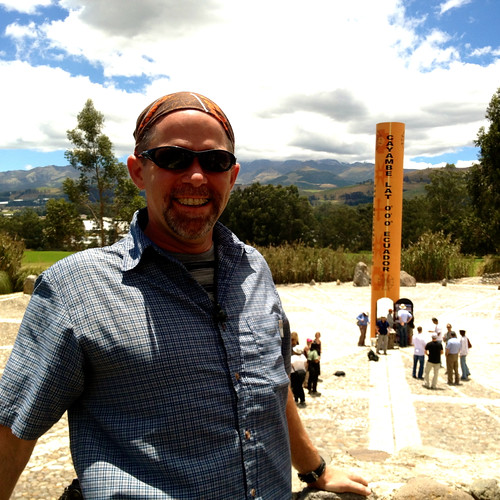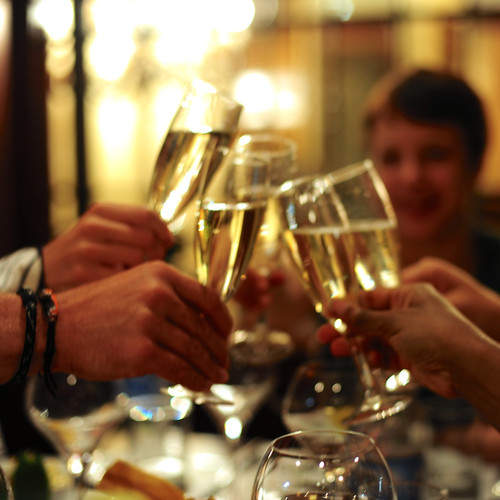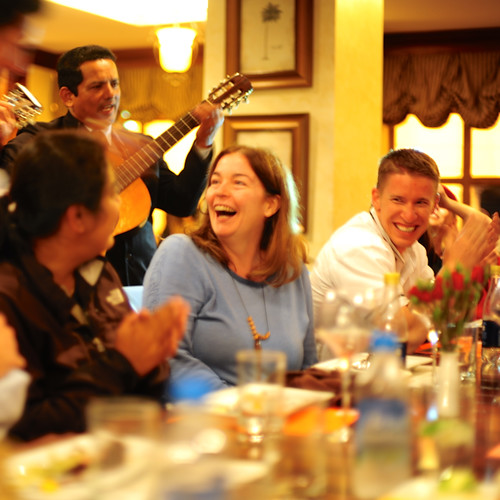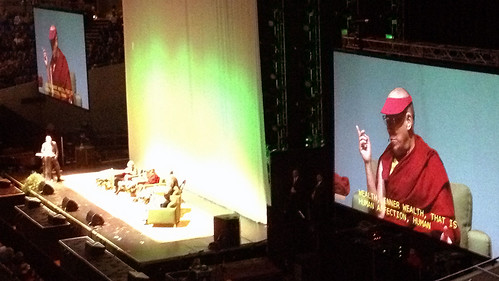Every week at Get Rich Slowly, I devoted Fridays to reader questions. I’d select one reader email to share, provide my own feedback, and then ask blog readers to contribute their opinions. It was one of the most popular features on the site.
I hadn’t planned to do that here at More Than Money. For one, I didn’t think there’d be many reader questions. Turns out I was wrong. Less than a week after this site’s “hard” launch, I’ve already received three great topics for discussion.
First up, my long-time friend P. dropped a line after reading the transcript of my WDS talk about personal transformation. She wrote:
I enjoyed your post yesterday, especially as I had my own Ulysses experience this summer. I realize you took significant action steps to get to where you are financially, but the whole time I was reading, I kept wondering how much of what you were able to do was based on money. (Please understand this is not criticism of you or your talk; it’s really just a philosophical debate.)
Certainly there are actions people can take to make themselves happier that don’t cost money (such as your examples from today), but even something as simple as saying “yes” often comes with a price. And so many of your examples were luxury items: travel to foreign countries, skydiving, getting tutored in Spanish. Even going on a massive dating spree.
 Money has allowed me to see some amazing places
Money has allowed me to see some amazing places
But as I said, this isn’t about you. Beyond the philosophical, it’s about me.
Mostly, I would say I am happy and lead an awesome life. The one hiccup to me is my job. I can say nothing negative about my job: It pays buckets of money, it has great benefits, great hours, prestige, lots of vacation, and nice co-workers. But it’s not something I’m passionate about. I probably once was, but it’s too familiar now, or old hat, or, perhaps, boring. I feel like if I didn’t have to work as much, I could spend more time doing the things that truly add joy to my life. But many of the things that bring joy to my life, I couldn’t do if I didn’t make this money.
And of course with kids, the ability to take big risks decreases a lot.
Again, I’m not really unhappy, nor am I looking for you to solve my job issue (retiring Dec. 31, 2015!), but I wondered: If someone can’t make a living doing what they love, or make a lot of money, how much of what you talk about is unavailable to them?
This is a great question, and one we’ve tackled many times over the years at Get Rich Slowly. (For instance.) Fortunately, there’s actually a solid body of research into the relationship between money and happiness. Rather than re-invent the wheel, I’m going to share my summary of the subject, which was first printed in the July 2011 issue of Entrepreneur magazine.
The Secret to a Rich Life
There’s a strong correlation between wealth and happiness. Rich nations tend to be happier than poor nations, and rich people tend to be happier than poor people. But money’s impact on happiness isn’t as great as you might think. If you have clothes to wear, food to eat and a roof over your head, more money has only a marginal effect on your sense of well-being. Other factors are more important.
In a 2005 issue of the Review of General Psychology, Sonja Lyubomirsky, Kennon Sheldon and David Schkade looked at years of research to determine what contributes to long-term happiness [PDF]. They found that about half of our happiness is biological, determined by a sort of happiness “set point.” About 40 percent of happiness comes from the things we choose to do, like exercising, setting goals and building friendships. Only about 10 percent of our happiness is based on circumstances like age, race, gender — and, perhaps surprisingly, financial status.
Although your financial situation plays just a small role in your overall happiness, it does affect it. According to a paper published in the April 2011 issue of the Journal of Consumer Psychology, some financial habits bring greater satisfaction than others [PDF].
“If money doesn’t make you happy, then you probably aren’t spending it right,” write authors Elizabeth Dunn, Daniel Gilbert and Timothy Wilson.
They offer several principles meant to maximize happiness, including:
- Buy more experiences and fewer things. Material goods depreciate. The day after you buy something, it’s probably worth less than you paid for it. Experiences, on the other hand, appreciate. Your memories of the things you do — vacations you take, concerts you go to — tend to become fonder with time.
- Use your money to help others. Personal spending has only a small effect on happiness, but pro-social spending [PDF] — money donated to charity or used to buy gifts for others — consistently produces strong, positive feelings.
- Buy many small pleasures instead of a handful of large ones. This one’s tough to hear on a personal level, because I tend to forego daily indulgences for big rewards. But, in the words of the authors, people are usually happier with “frequent doses of lovely things rather than infrequent doses of lovelier things.”
- Pay now but consume later. Buying today but paying tomorrow leads to debt — and to unhappiness. Deferred gratification makes us happier, and not just because we avoid debt. It also builds anticipation (which is itself pleasurable) and usually leads us to make smarter choices.
- Beware of comparison shopping. If you’ve read The Paradox of Choice by Barry Schwartz, you know that people tend to be happier with fewer options. With fewer choices you’re less likely to make a “mistake” while shopping, and there-fore less likely to suffer buyer’s remorse. Plus, it can be tough to know which features actually matter most. Find a good option, go with it and don’t look back.
What’s the best way to be sure money will make you happy? At the 2010 Berkshire Hathaway annual shareholders meeting — also known as “Woodstock for capitalists” — Warren Buffett’s business partner, Charlie Munger, shared a pearl of wisdom: “The secret to happiness,” Munger said, “is to lower your expectations.”
If you can’t be content with what you have, you’ll never lead a rich life, no matter how much money you earn.
Happiness in Real Life
 All of that is theoretical, of course, and P.’s question involves the real world. In the real world, I’ll admit: Much of the change I’ve been able to accomplish, and much of the happiness I currently experience, is because I have the money (and the time) to spend on activities that bring me joy.
All of that is theoretical, of course, and P.’s question involves the real world. In the real world, I’ll admit: Much of the change I’ve been able to accomplish, and much of the happiness I currently experience, is because I have the money (and the time) to spend on activities that bring me joy.
What’s more, having savings gives me a safety net. It comforts me. I know that if I take a risk and something goes wrong, I have options.
That said, the things that make me happiest have nothing to do with money. I enjoy writing. And reading. I love working out. And, most of all, I get pleasure from spending time with family and friends — especially time with The Girl.
Related reading: Just yesterday, Paula at Afford Anything published a nice look at
how wealth buys time. In many ways, that’s what I’ve been using money to do recently — to buy time. And that’s not a luxury everyone has.
The bottom line? One of my fifteen money mantras is this: It’s more important to be happy than it is to be rich. Money doesn’t matter if you aren’t pursuing a meaningful life filled with family and friends.
Fortunately, P. is already doing that. She’s happy and wealthy. She’s in a good place, and she knows it. In a follow-up email, she wrote:
For now, I’m finding my happiness by getting through my work and living passionately on the weekends (and Thursdays, because I only work four days a week!) and through vacations. My plan is to retire in three years, four tops (my husband is stuck on five — that’s our one money argument). Having a “finish line” also makes it easier to get through.
Since this is my first “ask the readers” column here at More Than Money, I want to turn this around now and ask you what you think. What’s the secret to a rich life? To what degree do you need money to be happy? If you’ve experienced both wealth and poverty, how would you compare the two? What was happiness like in each state? And to get back to P.’s original question: What are some of the best ways to find meaning and joy on a limited income?
Note: Do you have a question for the More Than Money community? Send it in. I don’t have a contact form yet, but my email addresses aren’t hard to guess. (Hint: I have a gmail account.) And the great thing about doing “ask the readers” here? We can cover all sorts of topics, not just personal finance. If you want to ask about blogging or travel or dating or donuts, those are all fair game.

